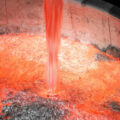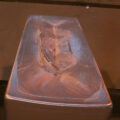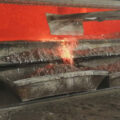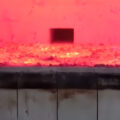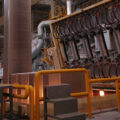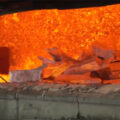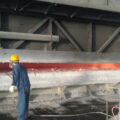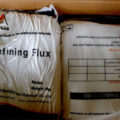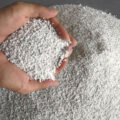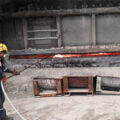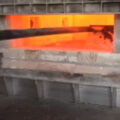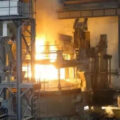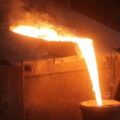Aluminum smelting and casting provide billets for plastic processing. The smelting furnace mostly uses gas reverberatory furnace or oil-fired reverberatory furnace, and the general capacity is 20-40 tons or more; resistance heating reverberatory furnace is also used, and the capacity is generally about 10 tons. In order to shorten the furnace loading time, improve the melting efficiency, reduce the absorption of gas and the involvement of oxide film, the industry has adopted the tilting top-loading round furnace. It is best to use rapid analysis equipment to analyze the alloy composition during aluminum smelting and adjust it in time. In order to ensure the purity of the melt, prevent the pollution of harmful gases and control the chemical composition, in addition to shortening the aluminum smelting time as much as possible, it should be covered with a powdered flux based on potassium chloride and sodium chloride. The melting temperature is usually controlled at 700 to 750°C.
Plastic processing of aluminum and aluminum alloys should ensure that the product achieves stable and consistent required dimensional accuracy, mechanical properties, and good surface quality. Also pay attention to prevent mechanical damage and corrosion, control the grain size and structure. These quality requirements are mainly guaranteed by production technology and equipment. Aluminum and its alloys generally have good plasticity and are easy for plastic processing. The phase composition of duralumin is more complex, with low melting phase and intermetallic compounds and other brittle structures. Its plastic processing has some characteristics: such as homogenization treatment to eliminate internal stress and intragranular segregation generated when the billet is cooled; the billet surface should be milled to remove the surface segregation produced by the low melting phase. Some aluminum alloys need to be coated with aluminum in order to improve corrosion resistance and workability. Aluminum alloy is sensitive to overheating, and the heating temperature must be strictly controlled.
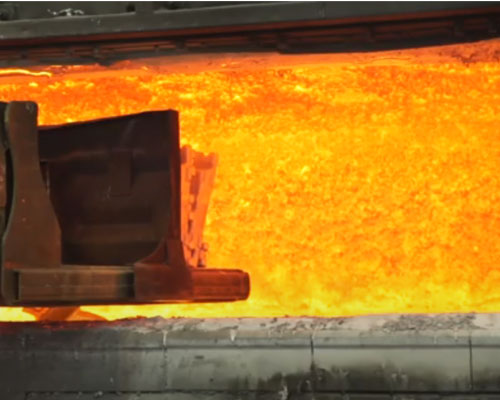
The molten metal needs to be refined and filtered to remove the harmful hydrogen gas and non-metallic inclusions in the metal to improve the purity of the metal. Refining usually uses solid refining agents or gas refining agents. The solid refining agent is generally based on chlorine salt, and hexachloroethane is also used as a refining agent to replace chlorine salt. Early use of active chlorine gas as a gas refining agent, although the purification effect is good, but serious environmental pollution, so the development of nitrogen-chlorine mixed gas, inert gas and three gases (N2, Cl2, CO) refining agent, the effect is better. In order to ensure the refining effect, the oxygen and moisture content in the refined gas should generally be less than 0.03% (volume) and 0.3 g/m3, respectively. The dynamic vacuum degassing method also has better degassing and sodium removal effects.
Filtration is to let the molten metal pass through a ceramic foam filter to remove suspended inclusions in the melt. Commonly used glass wire mesh, microporous ceramic tubes and plates, and alumina particles are used as filter beds for filtration, and electric flux refining and flux layer filtration can also be used.

